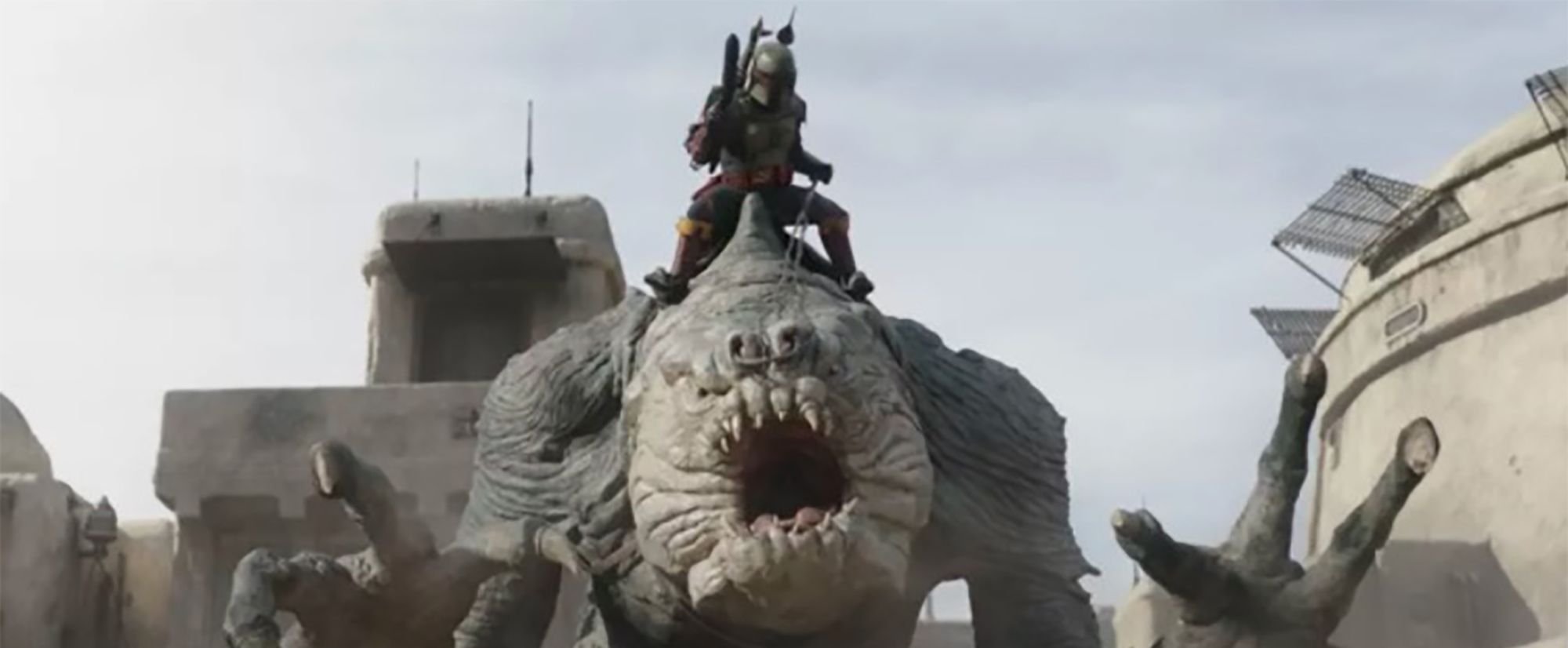Well, The Book of Boba Fett has come to an end.
While the lasting reactions and memories of the show will take some time to settle in, I can give a glimpse of what I was feeling in real time. The bar for the series was quite high, coming off of the smashing success of The Mandalorian, so it had a tough task looking to meet those expectations.
In the end, the latter series did not top what they were able to achieve with the former. Boba Fett feels like a sidestep in the more sweeping thematic story of The Mandalorian. It was an amusing aside that created some all time visuals, but that left fans scratching their heads about the sudden U-turn in attitude from the titular star.
In the head canon of fans, Boba Fett was the most badass bounty hunter in the galaxy. A man who once stood up to Darth Vader. A loner who Darth Vader had to plead to use more humane tactics. With this build up of a character that was long fan beloved, and extremely limited in actual screen and story time, we had no idea what we were in for. But given the triumphant and brutal return of Boba in The Mandalorian, we did expect that the character would flex his muscle at all that stood in his way.
What we got in the series however was a suddenly pacifist Boba Fett, who spent long stretches without his signature helmet on. He was a character long on monologues and short on action. And while the sudden turn of Boba Fett into a ruler who wanted to lead by respect and not fear was intriguing, the thought was never paid off. We never concretely understood why he had the sudden change in temperament. We were just asked to accept it.
The series suffered from a lack of dramatic conflict. An interesting opposing force was introduced near the end of the series in rival bounty hunter Cade Bane. It seems like the story would have gained in tension and menace had a character like Bane challenged and threatened Boba in the opening episode. There was never a face to the danger that Fett was up against. There was a masked crime gang, but we were never taught to fear them, only to believe that they had a stranglehold on Tatooine. It seems there is a strong story to be told here, and I wonder what employing some Breaking Bad level tactics could have revealed. Breaking Bad put on a masterclass of revealing one menacing underworld character at a time that the main character had to go through. Each character was introduced as unhinged and brutal in their own way. From Tuco Salamaca to Gus Fring, we always knew exactly who was threatening the well-being of the characters in Breaking Bad. In The Book of Boba Fett, evil had no face. We never got to see Boba really agonize about who he was up against. It would have led to much more dramatic storytelling and still could have worked with the slow burn tempo of the opening episodes.
In the end, all of our heroes come back to Tatooine to assist Fett in his defense of the town from the Pike Syndicate. Big shootouts and set pieces abound, and we are given some cool and noteworthy action. The setup gives an excuse for Boba Fett to satisfy fan desires by showing him riding on top of a fearsome Rancor beast through the dusty streets of Tatooine. The beloved Grogu shows up and saves the day in Boba Fett's show with his new mastery of the Force. In the end, Fett is seen as the hero of the town and the other characters go off on their next adventures.
While the ratings proved to be a success, you have to wonder where the story of Boba could go from here. Will a season two see him defending the town from a new crime gang?
I was expecting to see some tie in to the Han Solo Star Wars film, which heavily featured crime syndicates. The Emilia Clarke character from that film, Qui-ra, was set up as a capable crime lord working alongside Darth Maul. That would have been a blockbuster worthy pairing to be the tormentor of Boba Fett in this series. But they were no where to be seen. Instead we got a masked gang who we had to accept as being brutal and ruthless.
In the end, The Book of Boba Fett feels like a series searching for an identity. There are cool sequences that lean into the space western trope. There were soulful moments where Fett learned the culture of the Sand People, where it felt like Star Wars culture was moving forward. But then there were also the bland gangster scenes that felt like they could be further developed. And lastly, there were full episodes devoted to The Mandalorian, which served as great asides in that parallel story, but felt shoe horned into a series supposedly building up Boba Fett. It makes you wonder if this wasn't a part of the original series vision, but came down in feedback from Disney looking to get the most popular characters of the new Star Wars era back on screen as soon as possible. Understandable from the Disney brand perspective, but it came at the cost of muddling the narrative around Boba Fett.
The positive side is we are still getting more Star Wars live action. While the series didn't take big risks or develop Boba in the most coherent way, it did create some magical visuals and nostalgic Star Wars vibes that kept me entertained. I'll always want the best for Star Wars, but I'll keep coming back for their live action offerings whenever they drop.
Next up, Ewan McGregor returns in the title role for the upcoming Disney Plus series, Obi Wan Kenobi.
A presence we have not felt since...
